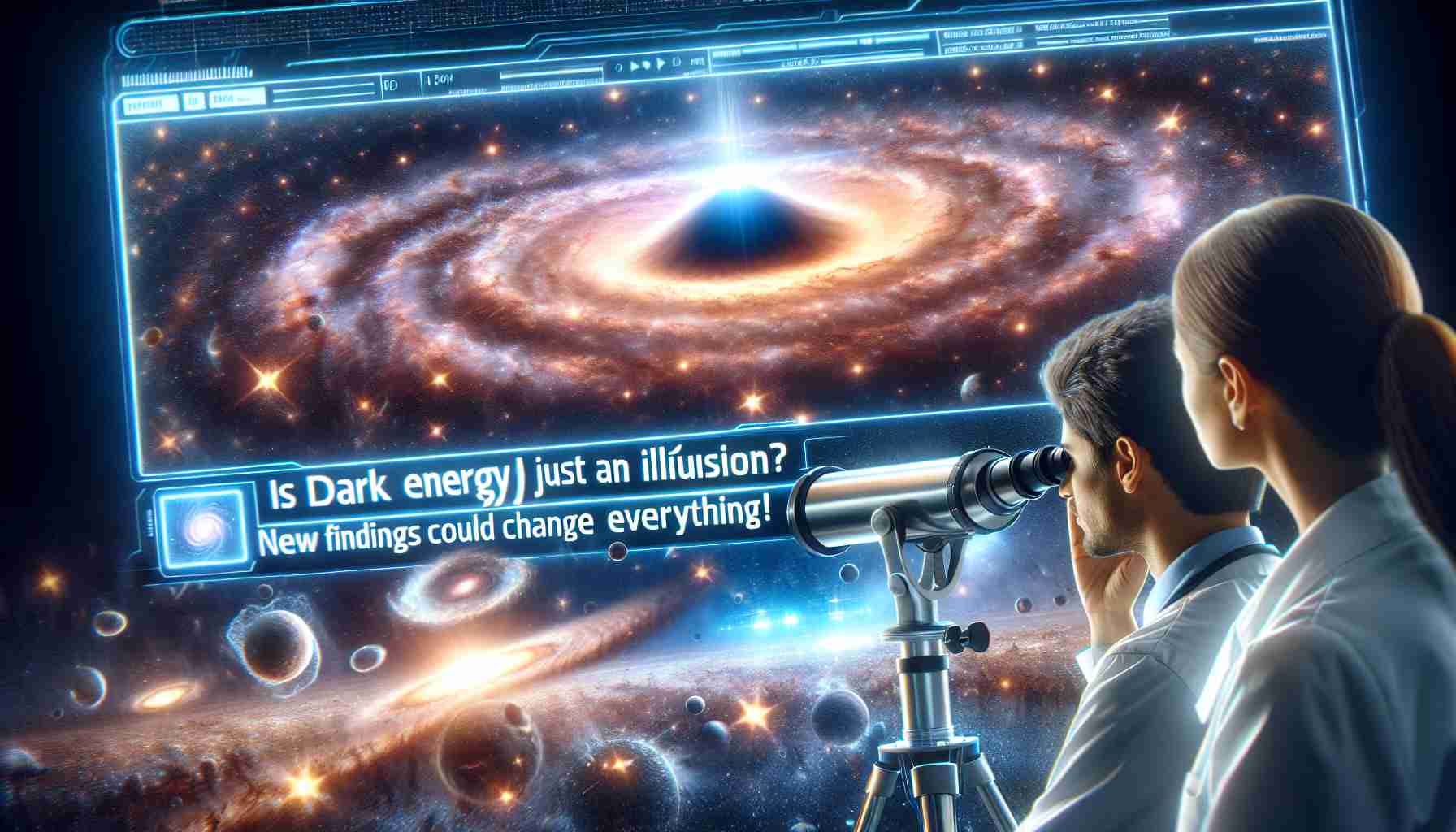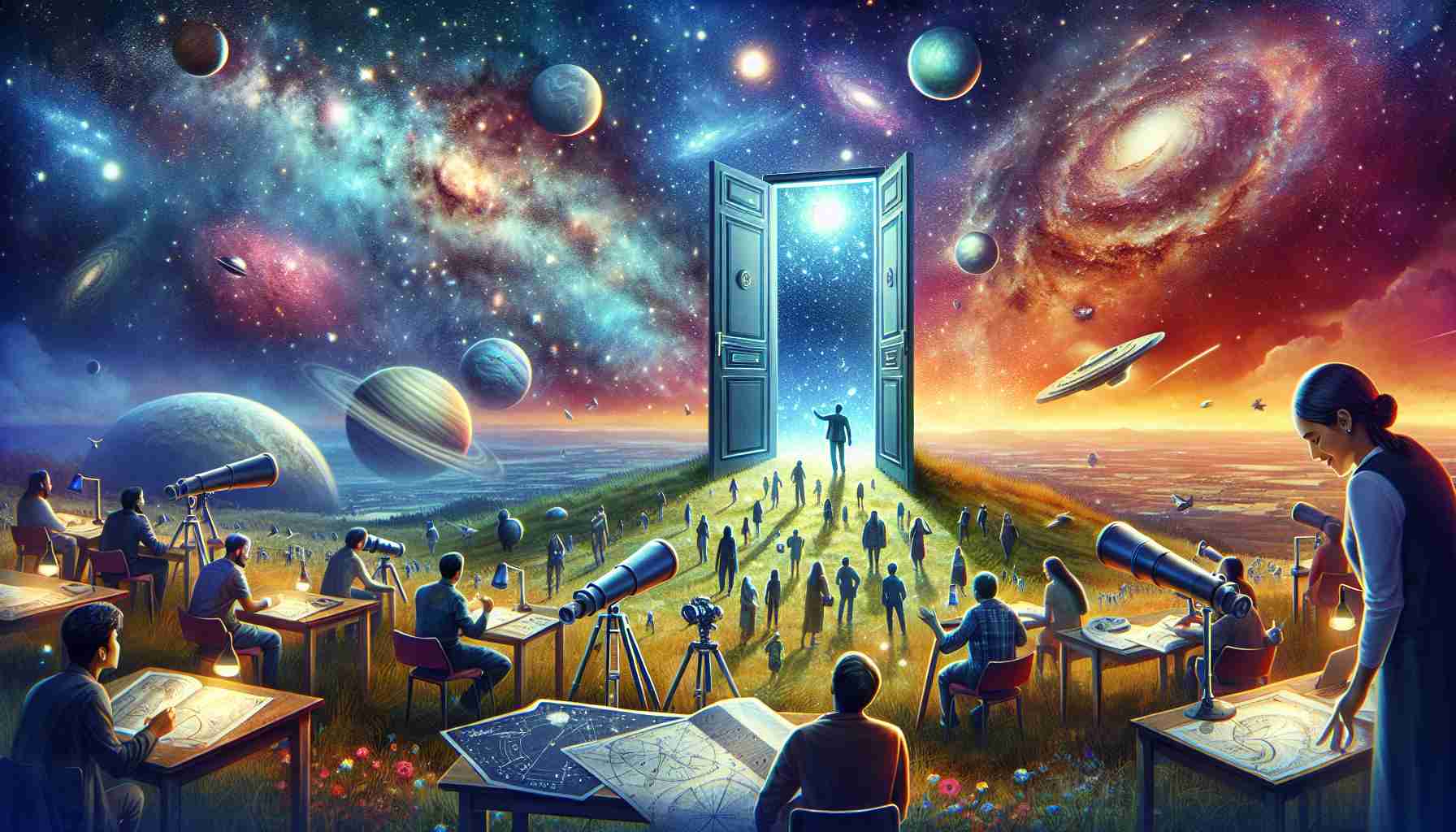Is Dark Energy Just an Illusion? New Findings Could Change Everything!
The Mysteries of Cosmic Expansion
Recent research is challenging the established understanding of dark energy, a phenomenon integral to our conception of the cosmos. Traditionally, dark energy is regarded as the force behind the Universe’s accelerating expansion, represented mathematically as a cosmological constant in general relativity. However, ongoing observations reveal discrepancies in this model, primarily associated with the infamous Hubble tension, where the expansion rate varies depending on measurement techniques.
Scientists note that when observing the Universe, matter is largely clustered into galaxies and voids, creating an apparently even distribution on larger scales, known as the principle of homogeneity. Yet, some theorists argue this principle does not apply to cosmic expansion. They propose a controversial approach called the Timescape model, suggesting that varying gravitational fields could affect time itself, leading to an illusion of expansion.
In their study, researchers analyzed the Pantheon+ dataset of Type Ia supernovae, comparing its compatibility with both the standard model and the Timescape model. Their findings hinted that the data slightly favors the Timescape perspective, which posits that the expansion might not be uniform and could indicate a fabricated notion of dark energy.
As this debate unfolds, it is clear that our grasp of the Universe’s mechanics is at a pivotal juncture, and further investigation may herald a transformative shift in modern cosmology.
Unraveling the Truth About Cosmic Expansion: A Potential Paradigm Shift
### Understanding Dark Energy and the Hubble Tension
The concept of dark energy, often described as the driving force behind the accelerating expansion of the Universe, has long been a cornerstone of cosmological theories. However, recent discoveries have sparked significant debate within the scientific community, particularly centered around the Hubble tension—a discrepancy that arises from differing measurements of the Universe’s expansion rate. This tension not only challenges the conventional understanding of dark energy but may also signal a need to revisit some fundamental principles of cosmology.
### The Timescape Model: A Revolutionary Perspective
One of the most intriguing developments in cosmology is the Timescape model, which offers a radical rethinking of cosmic expansion. Unlike traditional models that uniformly apply a cosmological constant, the Timescape model suggests that the effects of gravity can vary across different regions of the Universe, affecting the flow of time itself. This could lead to the perception that the Universe is expanding at a different rate than previously understood.
### Insights from the Pantheon+ Dataset
Recent analyses of the Pantheon+ dataset, which comprises an extensive collection of Type Ia supernovae, indicate a preference for the Timescape model over the standard cosmological model. The evaluation of this dataset is crucial, as Type Ia supernovae serve as reliable “standard candles” for measuring cosmic distances. The findings imply that the observed discrepancies in expansion rates may stem from localized gravitational variances rather than a uniform dark energy landscape.
### Implications for Future Research
The ongoing investigation into cosmic expansion brings forth several implications for modern astrophysics and cosmology:
1. **Redefining Cosmological Constants**: If the Timescape model is validated, it could necessitate a reformulation of the cosmological constant and other foundational equations in general relativity.
2. **Innovations in Measurement Techniques**: The discrepancies highlighted in the Hubble tension may prompt the development of new observational techniques aimed at gaining a clearer understanding of cosmic distances and expansion rates.
3. **Multidisciplinary Approaches**: Bridging observations in cosmology with theories from physics and astronomy could enhance our understanding of the Universe’s evolution, leading to a more cohesive scientific narrative.
### Potential Limitations and Concerns
Despite the promising implications of the Timescape model, there are limitations and challenges ahead:
– **Complexity of Gravitational Effects**: Understanding how varying gravitational fields operate on cosmological scales is not straightforward and may require advanced theoretical frameworks.
– **Data Interpretation**: The interpretation of supernova data is inherently complex and susceptible to biases, necessitating careful scrutiny of methodologies.
### The Future of Cosmology
As research unfolds, the implications of shifting paradigms offer a fascinating glimpse into the workings of our Universe. Continued exploration of the Timescape model and similar theories may lead to transformative insights into the nature of dark energy and gravitational effects on cosmic scales.
For those interested in delving deeper into the latest discoveries in cosmology and astrophysics, you can find more information at NASA.
By understanding the intricacies of cosmic expansion and challenging established beliefs, scientists are on the brink of potentially redefining how we view the Universe and its fundamental mechanisms of growth and evolution.













